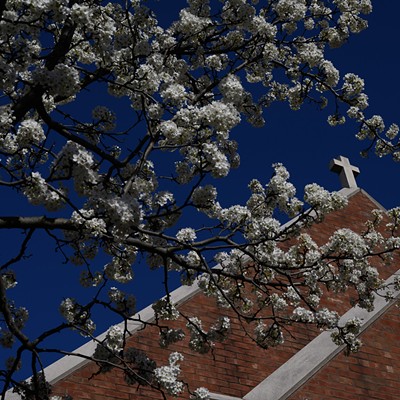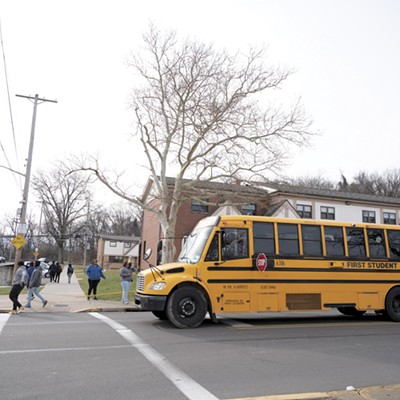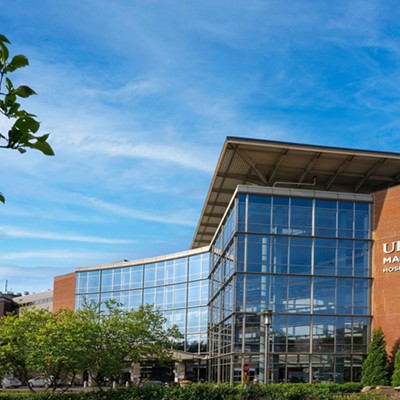With its big, sleek new Downtown building, the August Wilson Center for African-American Culture might seem a finished product -- a ready-made institution.
But while its bricks and mortar have been hosting exhibitions and performances for a year, the group itself is a work in progress, says its new executive director, André Kimo Stone Guess.
Still, a town-hall meeting last week made it clear that the community expects a lot.
The Aug. 16 meeting in the AWC's 486-seat theater drew about 100 to talk with Guess and board chair Aaron Walton. The men sat onstage next to a screen bearing text-messaged comments ranging from kudos ("Thanks to the August Wilson Center, every month is Black History Month") to programming requests both modest ("more gospel concerts") and ambitious ("Bring India.arie, Ledisi or Common"). Attendees, meanwhile, suggested everything from arts classes to video-production initiatives.
Guess did nothing to dispel ambitions: He told the crowd that it's "probable" the center will eventually become "the pre-eminent insitution for African-American arts and culture in the world." Yet the AWC, he said, is focusing first on local artists and the local residents who support them. Examples include the musicians of the Pittsburgh Jazz Orchestra and other area performers who took the stage alongside national acts during this year's First Voice festival.
Guess was formerly vice president and producer, and director of finance and administration, at Jazz at Lincoln Center. More recently, he's done private consulting for nonprofit institutions and performers including Wynton Marsalis.
But the AWC faces sizable challenges. Some are financial: The Center still owes more than $8.5 million toward construction of the roughly $40 million building, Guess says.
Another issue, raised by several town-hall participants, is that the AWC has yet to sink roots in the community it's meant to serve.
Guess contends the Center's financial struggles are typical for a new organization suddenly running its own headquarters. And he cites fundraising progress: The Center is within $400,000, for instance, of meeting a Heinz Endowment match grant to leverage another $2 million.
His fundraising methods sound unorthodox. The "patron model" -- reliance on a few big donors -- "is going away," Guess says. Instead, he's seeking many small donors, recalling how black churches are funded. "The majority of the people in the community can afford to give a dollar, or whatever it is they can," he says, adding, "It worked for Obama."
Meanwhile, Guess intends to keep the Center accessible. "We don't ever want money to be a barrier to people engaging with us," he said Aug. 16. Pay-what-you-can admission, and comp tickets for volunteers, can enable new audiences, he said. To lower cost barriers to new talent, the AWC is exploring corporate sponsorships for performance space.
Some left the meeting dissatisfied. John Wilson, for instance, produces hip-hop performances, and says the biggest fans are youths who can't patronize the clubs that let him stage the shows. The Swissvale man, 36, had come hoping for inroads to the AWC mainstage; he was disappointed when Guess suggested he start with the new weekly, casual offCenter performance series.
Guess acknowledges that "We can't be all things to all people." But he says the Center's mainstage would be available to artists who are "hungry, persistent and consistent" -- and who can turn out big enough audiences to justify booking the space.














